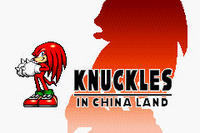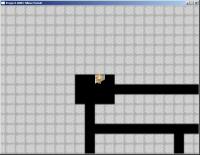[Flash] English-Japanse Matching Quiz
Actually designed for Japanese junior high school students to review the English words they are learning, but still interesting for us Japanese learners. ^_^
Actually designed for Japanese junior high school students to review the English words they are learning, but still interesting for us Japanese learners. ^_^
Truly fantastic step-by-step guide to beginning Japanese grammar. If you're trying to learn Japanese, START HERE.
Resources on my to-check list that I haven't had time to investigate properly yet.
Basic Word Order
Pimsleur [info]
How To Tell The Difference Between Japanese Particles: Comparisons and Exercises Naoko Chino [info]
Learn Japanese Verbs and Adjectives Using Memory Mnemonics Ryan McDonald [info 1] [info 2]
Remembering the Kanji James W. Heisig [info] [preview]
Linkword
Rosetta Stone
Collin's Japanese Language & Culture Page KanjiLab (great flashcard program), J_Inflect (verb inflection/reverse conjugation software), Self-Study guide, and a WHOLE MASS OF LINKS.
Easy-peasey, Japanesey Tips on how to learn it from scratch. Some good advice here.
Java Hiragana-Katakana game Match Hiragana with Katakana. It's easy at first, but it gets harder. Round 20 is my goal..
JquickTrans
Japanese to English translation
"Please note, this system is in need of serious development and can translate simple phrases or give you the general subject of a sentance. It will NOT give you a translation in proper english simply because the japanese language cannot be translated in such away without artistic influence."(from Willuknight)
The Japanese Excite page has an excellent translation service. It seems to be a little more accurate than the other services.
The translation isn't as good as I'd like it to be. Can you make it more accurate?
The translation you are seeing was produced automatically by state-of-the-art technology. Unfortunately, today's most sophisticated software doesn't approach the fluency of a native speaker or possess the skill of a professional translator. Automatic translation is very difficult, as the meaning of words depends upon the context in which they are used. Because of this, accurate translation requires an understanding of context, as well as an understanding of the structure and rules of a language. While many engineers and linguists are working on the problem, it will be some time before anyone can offer a quick and seamless translation experience. In the interim, we hope the service we provide is useful for most purposes.(from their FAQ)
DoCoMo's Digital Library
MLC
Learn Japanese with the Pizza Cats
Nihongo o oshiete
The Foreigner
The Kanji Site has levels 4-2 of the kanji, and the kana (in case you haven't learned it yet).





